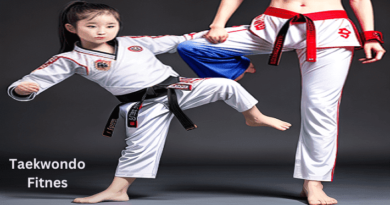#1 World Taekwondo Skills
Taekwondo is a Korean skill that calls for huge physical stamina and agility. Taekwondo skills competitions last three minutes per round and consist of a series of quick punches and kicks with a minute’s rest between each round; in a competition, participants may be required to perform five to eight rounds in a single day to reach the finals. This requires some anaerobic fitness as well as a high aerobic capacity to recover and maintain performance over multiple rounds and competitions.
About Taekwondo Skills
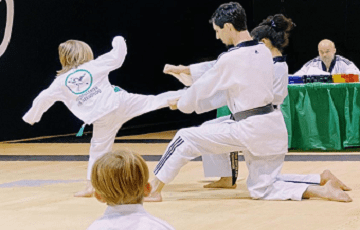
Taekwondo is a martial art from Korea that calls for intense physical preparedness and synchronization. Taekwondo skills matches consist of three three-minute rounds of rapid punches and kicks, with a one-minute break between each round; in a single match, participants may fight five to eight times a day to reach the final round.
A certain level of anaerobic fitness is therefore required to participate. But athletes must also have good aerobic fitness to recover and maintain their physical condition over several rounds and throughout the competition.
Taekwondo skills is a heavyweight sport (see weight categories in the table below). Weight checks for opponents must be done the day before. As in other heavy-weight sports, athletes often try to compete at a higher weight to gain an advantage over their lower-weight opponents.
For this reason, athletes often train above their competition weight. This means that athletes must lose weight and “gain weight” in the short time leading up to the competition. Some of the methods used by athletes to lose weight quickly are inappropriate and detrimental to performance. Athletes must choose a weight range based on their previous weight, height, competition goals, and the lowest weight that will not compromise their health. For most athletes, maintaining a weight below 3-5% of their competition weight is a good goal, and training to lose extreme weight can be avoided.
Diet for Taekwondo Skills Training
For athletes to attain their optimum nutritional capacity while training, proper nutrition and hydration are crucial. Taekwondo skills athletes often compete below their normal training weight and often use inappropriate strategies to lose weight quickly in a short period. Dietary and fluid restriction, excessive exercise, saunas, laxatives, and diuretics interfere with nutritional goals, reduce athletic performance, and increase the risk of potential health problems.
The calorie intake should be as near to the workload as feasible in order to safely reach the target body weight. This will not only ensure adequate energy intake during training but also prevent unnecessary weight gain. An athlete’s diet should focus on nutrient-rich foods and avoid processed foods. Consulting with a trusted sports nutritionist can help them develop a nutritional plan that will help them achieve their training and competition goals.
Hydration needs: Taekwondo Skills
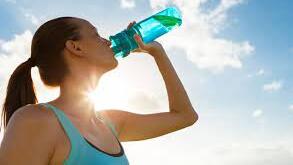
Many athletes try to compensate for the loss of sweat after training with body weight, which is concerning because it will result in weight gain on the scale. This practice is not recommended as weight is easily manipulated in the short term and does not add anything to the training program.
Athletes should drink water with every meal, between meals, and during training. Sports drinks are generally not needed during training but are useful during competition. Yellow urine throughout the day is a good sign of adequate fluid intake. Some malnourished athletes lose excess water by using saunas and sportswear to gain weight. This practice is not desirable because excessive dehydration is difficult to recover from, reduces performance, and increases the risk of heat stroke. Moderate dehydration can be safely use to lose weight under the supervision of a certify sports nutritionist, but lost fluids must be replace at the weigh-in.
Nutrition before the competition
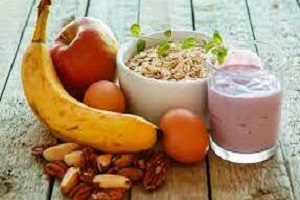
Pre-competition weight
Here are some tips to help athletes reach their goal weight two or three days before a competition. Some athletes try to fast before a competition to minimize the amount of food in their stomachs, but this can compromise optimal energy levels during the competition. The best solution is to eat low-fiber foods 24 to 48 hours before the competition. Choosing low-fiber breakfast cereals (e.g., rice cereal), white bread, smoothies, and liquid meals will reduce. The amount of undigested food in the gut and provide needed carbohydrates (fuel).
Athletes who regularly consume a high-fiber diet can lose between 1% and 1.5% of their body weight in two days on a low-residue diet. Beyond this threshold, weight loss must be achieve through water loss. Water retention can be reduce by avoiding excessive salt intake in the days leading up to the weigh-in. Lower than normal fluid intake in the 24 hours before weighing may result in greater weight loss and is preferable to increased sweating. If additional weight loss is need after a low-fiber diet and reducing fluid intake, athletes should use sweating techniques. It’s crucial to realize that the body will require more salty water to rehydrate after the weigh-in the more water. It loses as a result of weight reduction.
After the weigh-in
Between the weigh-in and the competition, there is a chance to replenish, hydrate, and recover from summary weight loss plans. Unless you have lost a lot of weight in the days leading up to the weigh-in (more than 5% of your body weight). You can rehydrate between the weigh-in and the competition. The best way to stay hydrated is to drink small amounts of sodium-containing beverages at 150% of the water lost (e.g., an athlete who has lost 2 kg of body weight due to fluid restriction or sweating will need 3 liters of sodium-containing beverages). Eating carbohydrate-rich foods after a major effort can increase fuel stores for the race.
Nutrition during the race
On the morning of race day, eat a normal, high-carbohydrate breakfast 3 to 4 hours before the scheduled time of the first race. In addition to breakfast, it can be difficult to plan meals during a race, as race schedules are often unpredictable. To maintain energy, runners should eat regular snacks throughout the day. This is especially important when participating in multiple races, as nutritional options are limit. Athletes cannot ensure adequate nutrition on the race course. Instead, they should consume portable, easy-to-digest snacks (e.g., fruit, granola bars, sports bars, nuts, bread dough, crackers, jam, and yogurt sandwiches) that do not interfere with their race preparation and do not cause bloating or congestion. Nervous athletes and those who have difficulty eating may prefer liquid snacks (e.g. smoothies/sports drinks).
Recovery Period
Meals or snacks containing carbs (to replace muscle glycogen reserves), protein (to repair muscle), and water can help with recovery after workouts or matches (to compensate for sweat loss). In some cases, it is not possible to eat a full meal immediately after training. In this case, a light meal immediately after the workout can help recovery until the next main meal can complete the recovery process. Listed below are a few instances of recovery foods including carbs, protein, and water.
- Fruit sorbet
- Corn flakes + skim milk
- 1 sports drink Other nutritional tips + Ham and cheese sandwich
- Yogurt + fruit slices + bottle of water
Further dietary advice.
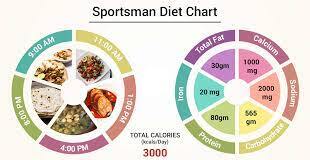
Young athletes need to ensure that their diet provides enough fuel for training and growth. As they grow, they need to move to higher levels.
Implement weight gain, recovery, and competition nutrition strategies outside of major competitions. So that athletes do not have to think about nutrition at critical times.
The use of supplements should be combine with the advice of a certify sports nutritionist or other professional. Only supplements that have been proven safe, legal, and effective can improve athletic performance.

